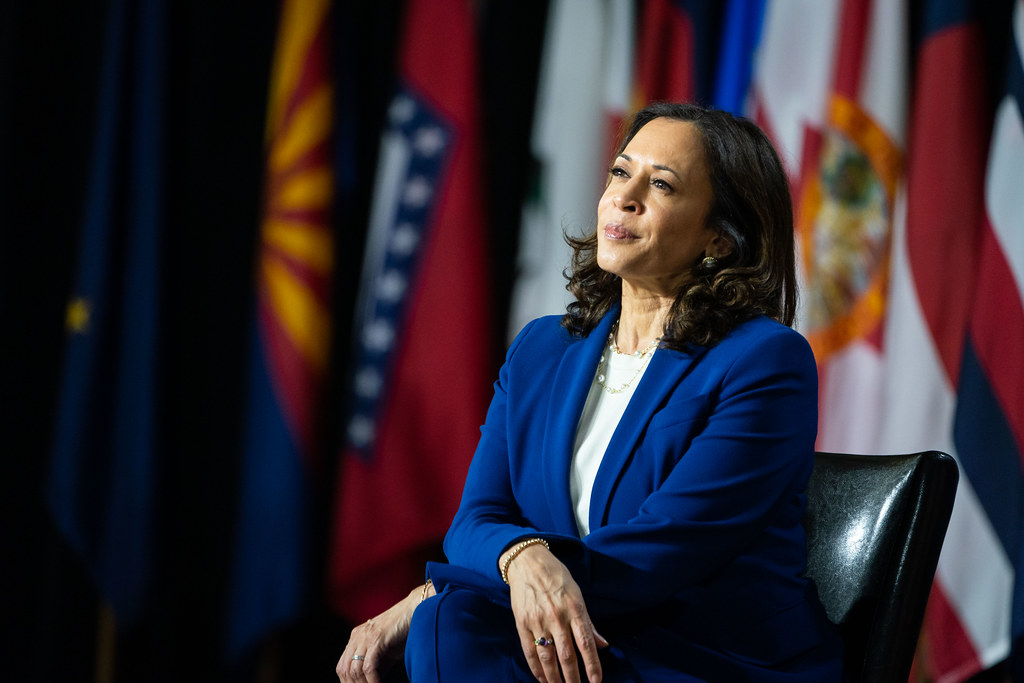
Vice President Kamala Harris faces the intricate challenge of fine-tuning her policy agenda to resonate with American voters, a crucial task for any presidential hopeful, particularly under unique circumstances this year.
Dual Challenges of Campaigning
Firstly, Harris is not just any candidate; she is a sitting vice president under President Joe Biden. This position ties her to both the achievements and controversies of the current administration. She inherits a mixed legacy, including successes like capping insulin prices and challenges such as controlling illegal border crossings.
Secondly, Harris carries the weight of her previous presidential bid, which was marked by her support for progressive policies that have been used by her opponents to label her as “dangerously liberal.” Now, she finds herself distancing from some past positions, such as opposing fracking and supporting single-payer healthcare, while committing to uphold Biden’s pledge of no new taxes for those earning under $400,000.
Strategic Policy Adjustments
Harris’s route to the presidency will require a strategic blend of acknowledging her past while also focusing on the future. She aims to maintain Democratic unity and shift the narrative towards scrutinizing Republican contender Donald Trump’s track record, which includes undermining abortion rights and challenging democratic norms.
The campaign has had to accelerate its efforts unexpectedly after Biden withdrew from the reelection race. Harris’s campaign site, freshly launched, currently lacks a detailed policy section, leading to a scenario described by her ally Bakari Sellers as “building the plane while you’re flying it.”
Key Policy Focuses:
- Healthcare Accessibility: Emphasizing affordable care and no tax hikes on the middle class.
- Childcare and Family Leave: Promoting policies for affordable childcare and paid family leave.
- Consumer Protection: Targeting unfair pricing and hidden financial fees.
On the policy front, Harris has echoed much of Biden’s platform, advocating for measures like affordable childcare and expanded healthcare coverage. Recently in Atlanta, she pledged to tackle price gouging and hidden bank fees, consistently pushing for the restoration of nationwide abortion rights.
New Proposals and Judicial Reforms
Amidst these commitments, Harris supports new initiatives such as imposing term limits for Supreme Court justices and establishing binding ethics rules, addressing what she terms a “clear crisis of confidence” in the court.
Presidential campaigns often delve into policy specifics during primaries, but Harris has skipped this step due to the compressed timeline, facing less pressure to detail funding and implementation plans for new proposals.
| Policy Area | Past Position | Current Emphasis |
|---|---|---|
| Healthcare | Single-payer system | Expanding accessible care |
| Tax Policy | Progressive taxation | No hikes under $400k income |
| Judicial Reform | Not previously emphasized | Supreme Court term limits |
While Harris works to unify the Democrats as the campaign progresses, she has faced internal pressure, such as debates over whether to replace Federal Trade Commission Chair Lina Khan, a Biden appointee. Despite some donor objections, many liberals have defended Khan, urging Harris to maintain her position.
Adam Green of the Progressive Change Campaign Committee believes Harris will maintain high trust with liberal factions, suggesting she will add her own nuances to the Biden administration’s policies without radical changes.
Republicans aim to anchor Harris to the controversies of the Biden administration and her past campaign missteps. They scrutinize her historical stances, like healthcare for undocumented immigrants and decriminalizing border crossings, to frame her as inconsistent or unreliable.
However, despite past controversies, Harris has shown a capacity to adapt and act decisively, as seen in her administration’s increased funding for law enforcement despite earlier support for budget reallocations.
As the election approaches, Harris’s ability to articulate a clear and compelling policy vision will be crucial. Her challenge lies in balancing the preservation of her base with the necessity to appeal to a broader electorate, all while navigating the complex dynamics of a rapid and unexpected presidential campaign.
Featured image credit: Adam Schultz via Flickr
Follow us for more breaking news on DMR
